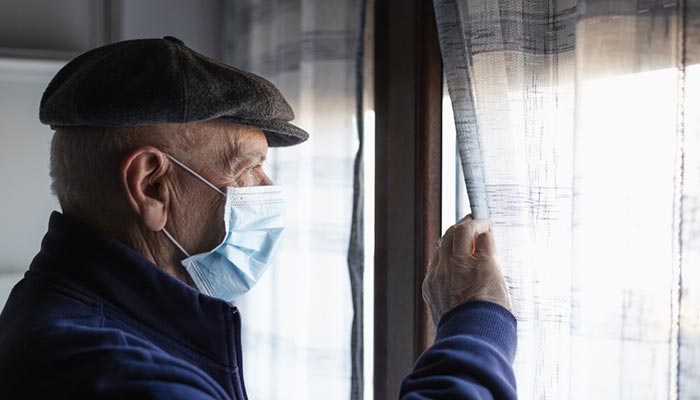As we continue to learn about how people aged 60 years or over are more susceptible to getting sick with COVID-19, family members and friends are being urged to limit their visits to older loved ones.
This new practice of social distancing is minimising the risk of exposure to vulnerable members of our community, but it is also contributing to another epidemic among older adults – social isolation and loneliness.
Even before the pandemic began, studies suggested that social isolation and loneliness had a profound effect on Australians aged 75 years or over. Similar studies found clear links between loneliness and depression, the development of dementia and having similar health impacts to obesity, alcoholism and smoking 15 cigarettes a day.
People with older loved ones can help mitigate the impact of social distancing and other pandemic-related factors that are putting older people at even greater risk. We’ve listed some ideas below:
Schedule regular phone calls
Reach out to your older loved ones during this crisis and schedule regular calls at the same time and on the same days. Encourage other family members and friends to do the same. Having regular, meaningful conversations for your older loved one to look forward to can help them feel less alone.
Set up easy-to-use technology
A laptop, tablet or smartphone will allow your older loved one to browse the internet, use email, connect with old friends on social media, stay in touch with loved ones, listen to music and watch movies. If you are not able to set up this technology yourself, you may consider engaging the services of an in-home computer and technology lessons provider that has documented processes and procedures regarding COVID-19.
Encourage intergenerational connection
Talk to the younger people in your family about the importance of staying connected with their older loved ones. Encourage them to regularly call and check in or text regular updates like photos and videos of what they are doing.
Drop and go
On the way home from the supermarket or pharmacy, drop off a meal or sweet treat for your older loved one to let them know you are thinking about them. Not much of a cook? Write a letter and drop it in the letterbox or purchase an indoor plant for them to take care of during isolation. Be mindful that Government updates and regulations regarding COVID-19 are being released daily which may affect your ability to do this.
Dust off their library card
While public libraries may be closed, many Australian libraries have increased their sharing services for things like e-books, audiobooks and movies. Contact your older loved one’s local library or council to find out how you can arrange access for them. If this is not an option, you can purchase books and DVDs online and have them delivered to your older loved one’s address.
Play your part
We all have a part to play in slowing the spread of COVID-19 in Australia. To protect your older loved ones, practise good hygiene, follow social distancing guidelines, adhere to limits for public gatherings, only leave the house for essential reasons and self-isolate if you are required to.
Social distancing doesn’t have to mean social disconnection for the elderly in our lives. With a little thought and preparation, you and your family can find new and exciting ways to connect with your loved ones and keep them safe from not only the risk of COVID-19, but also loneliness and isolation.



